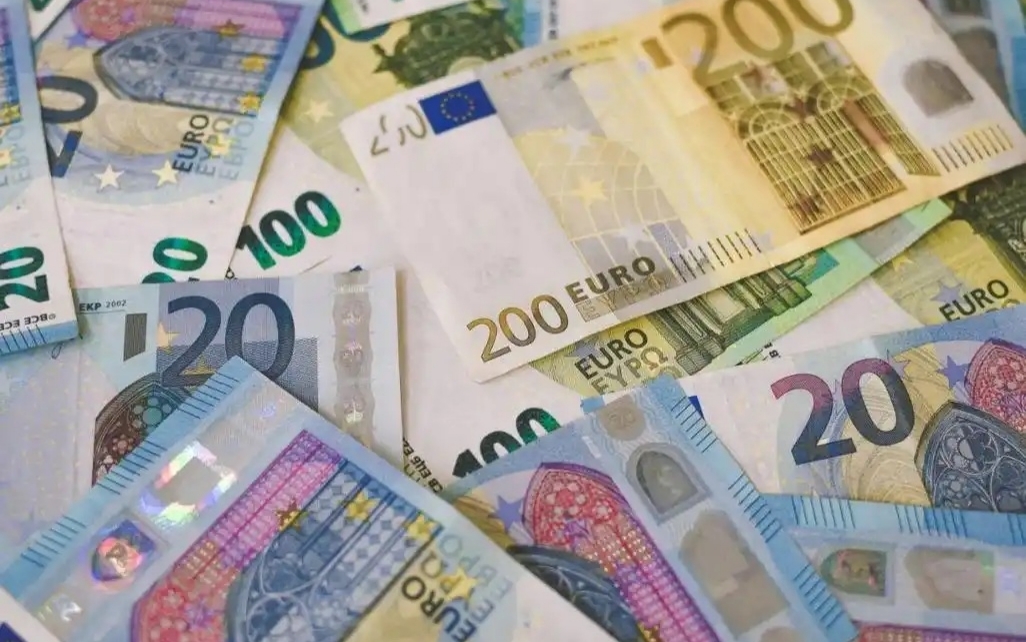
On June 4, 2025, Brussels delivered a landmark decision: The European Commission and European Central Bank formally announced that Bulgaria has met all criteria to join the eurozone, adopting the euro on January 1, 2026, as its 21st member. This concludes an 18-year pursuit—integration into the eurozone has been a central goal since joining the EU in 2007, yet high inflation and political turmoil repeatedly derailed progress. Now that technical benchmarks are finally achieved, Bulgaria finds itself engulfed in a national debate over sovereignty, price volatility, and economic autonomy, reflecting the profound tension between European integration’s ideals and realities.
Bulgaria’s path to the euro has been arduous. As recently as 2024, the country aimed to join but faced 9.5% inflation—far exceeding EU limits—forcing postponement. Through fiscal austerity and structural reforms, the government raced to comply: In March 2025, the National Assembly overwhelmingly approved a new budget capping the fiscal deficit within 3% of GDP, core to the Stability and Growth Pact. Crucially, inflation control proved effective: Over the 12 months ending April 2025, inflation fell to 2.7%, slightly below the EU’s 2.8% reference value. Though EU projections suggest 2025 annual inflation may edge up to 3.6%, it should drop to 1.8% by 2026, meeting long-term stability criteria. EU leadership lauded the achievement. European Commission President Ursula von der Leyen declared the euro would inject "robust momentum" into Bulgaria, boosting trade, attracting investment, and creating quality jobs. ECB Chief Economist Philip Lane specifically praised Bulgaria’s "reform resolve." For Bulgarian policymakers, the moment signifies strategic triumph. Prime Minister Dimitar Glavchev hailed it as "a day of profound significance," emphasizing "years of reform, commitment, and cooperation with European partners."
Public sentiment starkly contrasts with official enthusiasm. Recent polls reveal only 21% of Bulgarians support adopting the euro in 2026, while 33% advocate delay and 38% outright oppose it. This discontent has fueled street protests, with some groups demanding a referendum to retain the national lev—though constitutional scholars deem such efforts illegal. Fears center on sovereignty and living costs. In Sofia, retired teacher Maria Petrova voiced a common complaint: "The lev isn’t just currency; St. Cyril’s image on it symbolizes our culture. The euro? It’ll just make bread cost more!" Such anxiety stems from neighboring Croatia’s 2023 euro adoption, where service sector prices surged, disproportionately impacting low-income groups. As the EU’s poorest member, Bulgaria’s average monthly wage of €1,249 leaves rural households acutely vulnerable to price swings. Deeper unease concerns sovereignty surrender. "Who’ll set our interest rates now? Frankfurt, not Sofia!" criticized MEP Petar Volgin, accusing the government of bypassing public consultation and calling euro accession "Brussels’ decision."
Economists offer more nuanced assessments. Clear benefits emerge: Though the lev has long been pegged to the euro, currency conversion still costs businesses over 1 billion leva annually (≈€550 million), expenses eliminated by euro adoption; rating agencies like S&P signal potential upgrades, aligning sovereign borrowing costs closer to eurozone averages; and with the ECB assuming "lender of last resort" duties, the Bulgarian National Bank’s frozen 15 billion leva reserve requirement could be redeployed into markets, enhancing capital efficiency. Yet risks loom large. Associate Professor Grigor Salyiski of the Bulgarian Academy of Sciences warns the central bank will lose monetary autonomy entirely. A starker challenge is monetary policy alignment: The eurozone’s 1% reserve ratio clashes with Bulgaria’s current 12%. Sudden adjustment could trigger a "12-fold monetary supply shock," inflating asset bubbles. Moreover, eurozone public debt nears 100% of GDP—should debt mutualization advance, Bulgaria’s 28% debt ratio may force it to shoulder others’ burdens.
Facing public outcry, the government activated mitigation measures. Starting July, retailers must display dual pricing (lev/euro) to build familiarity. Stricter still is the Euro Adoption Act: From the dual-pricing launch, businesses cannot raise prices without justification, facing fines up to 10% of prior-year revenue for violations. Finance Minister Asen Vassilev repeatedly vowed: "Continuous price monitoring is essential to prevent unjustified increases." Political challenges prove tougher. Four years of political fragmentation—including seven elections and corruption scandals—have eroded policy stability. The pro-Russian far-right "Revival" party exploits euro-skepticism, while President Rumen Radev once endorsed referendum calls, amplifying uncertainty. EU Economy Commissioner Valdis Dombrovskis cautioned Bulgaria must "further strengthen competitiveness and resilience"—a veiled reference to its FATF greylisting for anti-money laundering failures, which, if unaddressed, risks capital flight.
With EU finance ministers set to finalize approval in early July, Bulgaria’s euro countdown is irreversible. For this nation contributing just 0.7% of eurozone GDP, its accession journey mirrors the monetary union’s expansion dilemma: When technical compliance clashes with public will, how can economic logic reconcile with sociopolitical realities? Inside Sofia’s central bank hall, newly minted sample euro coins gleam coldly, while outside, protesters hold lev notes bearing the gaze of national icons. Whether met with prosperity or pain, when 2026’s New Year bells toll, Bulgaria’s euro chapter will turn—echoing Reuters columnist Pierre Briançon’s warning: "Approving Bulgaria now is like building the euro mansion on unstable foundations."

報告顯示,中國電力投資加速增長,預計2024年電網基建投資將超過5300億元。
近日,市場迎來了一則引人注目的消息:工業巨頭3M公司(MMM.N)在本周五公布了其季度業績報告,隨後股價飆升至近兩年來的
最近,外媒給OpenAI算了筆賬,今年可能要血虧50億美元。
近日,巴黎奧運會和世界鐵人三項協會聯合發布了一項重大決定,宣布因塞納河水質污染問題,原定於近期進行的奧運會鐵人三項首次下
當地時間7月18日,法國巴黎發生了一起令人震驚的持刀襲警事件。
近期,一則重大消息在國際舞臺上引起軒然大波,馬來西亞宣布加入金磚國家。
調查發現,互聯網和智能手機的使用幹擾了韓國近五分之一學生的生活。